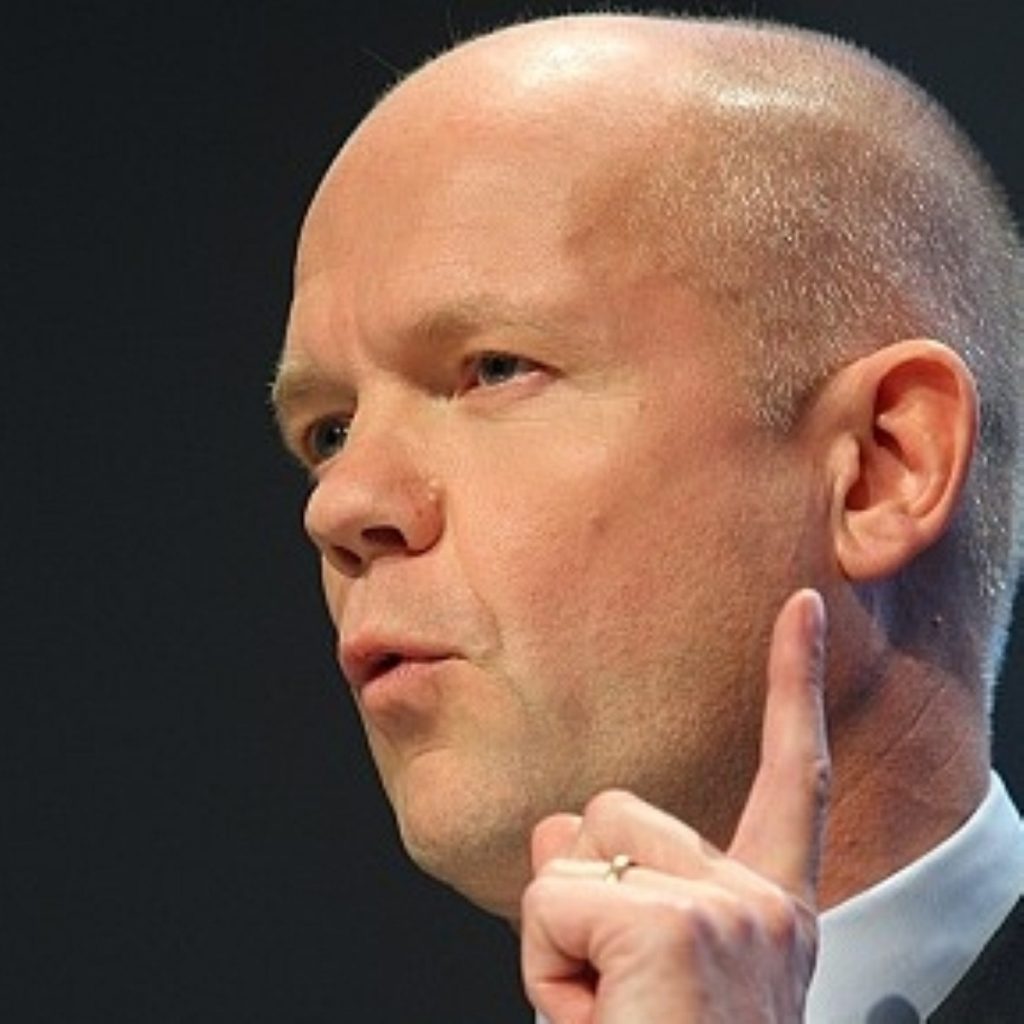Hague confronts Egypt over street violence
By Ian Dunt
William Hague has issued a thinly-veiled threat to the Egyptian regime over the violence taking place on the streets of Cairo.
The capital has been the scene of extraordinary violence today, between anti-government protestors and groups of thugs patrolling the city.
Thirteen people are understood to have died in the running battles.


“The world will be watching closely how the Egyptian authorities respond,” the British foreign secretary said this evening.
“Their reputation will be severely damaged if we see violence at the levels we have seen recently.
“The Egyptian people’s right to express their views in public freely must be defended.”
Numerous foreign journalists have been attacked on the streets of the city, as the situation in Egypt becomes increasingly violent and chaotic.
This afternoon, the vice-president appeared on television to blame international media for the violence taking place on the streets of Cairo.
“I blame certain friendly states who are hosting unfriendly TV stations who charge the youth against the state,” he said.
“I would say to the youth: we thank you for what you did; you were the spark that ignited reform in this time.
“Do not succumb to the rumours and satellite TV stations raising you against your country.”
State television has carried reports of Israeli spies dressed up as foreign journalists. Correspondents on the ground reported that they were repeatedly being surrounded by threatening groups of pro-government protestors.
Many analysts are treating the attacks on journalists as a sign the regime is taking concerted action to clamp down on critical coverage of its response to the protests.
“The abuse of internet and mobile networks and, in particular, today’s increased intimidation and harassment of journalists are unacceptable and disturbing,” Mr Hague added.
A BBC news team was arrested by secret police, handcuffed, blindfolded and interrogated for three hours. Journalists from Al Jazeera, CNN, Reuters and several Arab news outlets were also the victims of attacks.
BBC World tweeted: “Egyptian security seize BBC equipment at Cairo Hilton in attempt to stop us broadcasting.”
New York Times columnist Nicholas Kristof tweeted that the government was trying to round up journalists.
“I worry about what it is they’re planning that they don’t want us to see,” he said.
Sandmonkey, Egypt’s most famous English-language blogger, was arrested while delivering medical supplies. Shortly afterwards his blog went offline. The final post can be read here.
There were unconfirmed reports that he was later released after being badly beaten. His car was destroyed.
Jonathan Rugman, Channel 4 News’s foreign correspondent, tweeted: “One journalist punched in face, another stabbed in leg by pro-Mubarak thugs in Cairo this morning. On their way to hospital now.”
Most western journalists were unable to get down onto the streets as the hotel they were staying in was surrounded by a mob.
Jon Snow, Channel 4’s most prominent newsreader, tweeted: “Media hotel suffering Mubarak thugs attacking all our attempts to get out to report.”
ITV journalist Mark Austin tweeted: “Not allowed of hotel but would be madness to venture out.”
He later added: “Pitched battles and gunfire now right outside hotel. Army have little control. May not get to TV station.”
The army later evacuated some journalists, who made it to a TV broadcast point in time for bulletins.
Channel 4’s international editor, Lindsey Hilsum wrote: “Last night and today, Egyptian state TV had been broadcasting of Israeli spies disguised as western journalists roaming the country.
“It’s a wicked rumour to spread because it puts any westerner – or any Egyptian working with westerners – at risk of a beating or worse. It’s cynical to say the least.
“This government did a deal with Israel, but it still stirs up anti-Zionist feelings when it suits and that’s one reason so many journalists have been attacked in Cairo today.”
There were also reports that an Amnesty International worker has been detained by police.
Foreign Office minister Alistair Burt and US assistant secretary of state for public affairs Philip Crowley both spoke out about the treatment of journalists.
“There is a concerted campaign to intimidate international journalists in Cairo and interfere with their reporting. We condemn such actions,” Mr Crowley said on Twitter.
The scenes of violence complicated the ‘protestors vs government’ narrative which had built up over the last ten days, but they also appeared to have further alienated international public opinion against the regime.
Shahira Amin, a journalist with state-run Egyptian channel Nile TV quit her job over its coverage yesterday.
“We were basically showing the pro-Mubarak rallies all day long, as if that was the only thing that was happening,” she told the BBC World Service.
“I couldn’t show what was happening here in Tahrir. I couldn’t even report the figures as they were.”
Meanwhile, Vodaphone apologised for a stream of pro-government text messages sent out on its network.
“Under the emergency powers provisions of the Telecoms Act, the Egyptian authorities can instruct the mobile networks of Mobinil, Etisalat and Vodafone to send messages to the people of Egypt. They have used this since the start of the protests,” the company said.
“These messages are not scripted by any of the mobile network operators and we do not have the ability to respond to the authorities on their content.
“Vodafone Group has protested to the authorities that the current situation regarding these messages is unacceptable. We have made clear that all messages should be transparent and clearly attributable to the originator.”
There were widespread reports that yesterday’s pro-government mob was composed of secret policemen and released prisoners receiving money from the government – a theory the absence of any police presence seemed to substantiate.
Tomorrow is expected to constitute the climax of events, as demonstrators make one last push to remove President Mubarak from power following Friday prayers.

